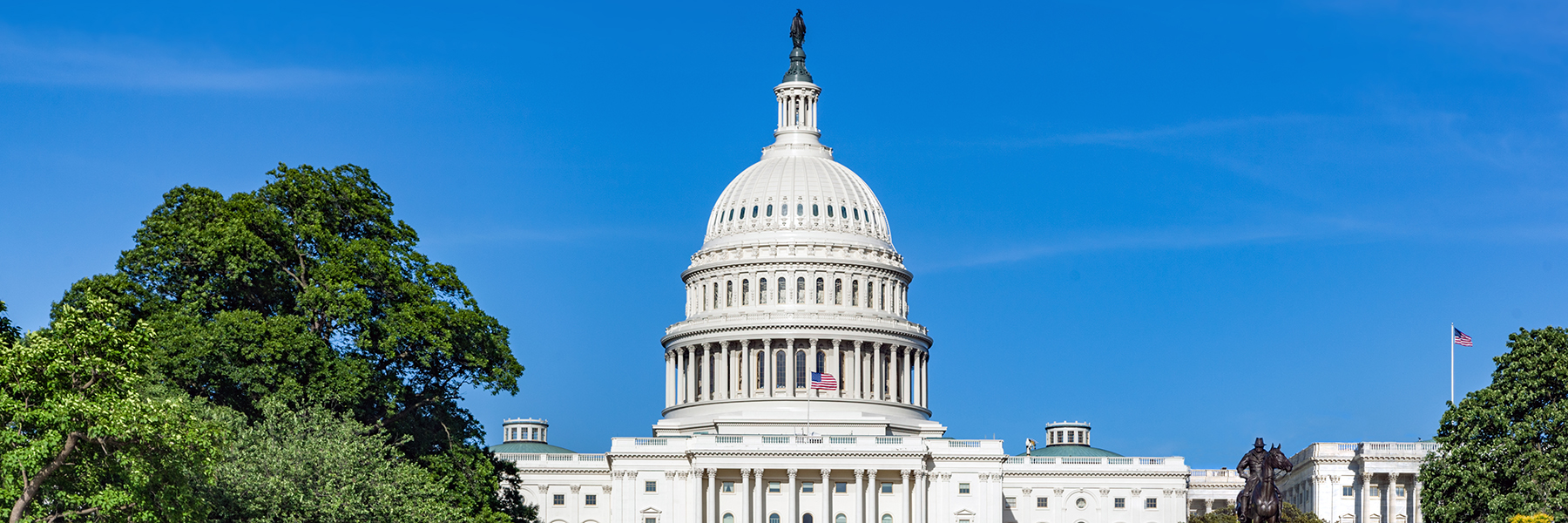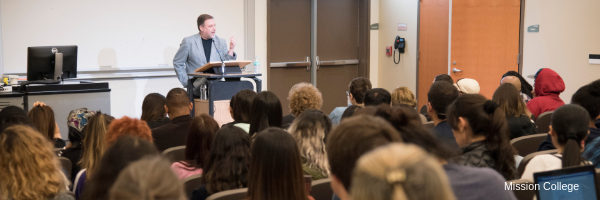In This Issue:
- League Agenda Advances College Access & Affordability
- Education Funding Initiatives Proposed for 2020
- Here Is What Happened in the 2019 Legislative Session
- Washington Discusses the Higher Education Act
- Federal Grant Opportunities
- Upcoming Events
League Agenda Advances College Access & Affordability
The League’s two sponsored legislative measures, AB 30 (Holden), which would simplify the process colleges must utilize to enter into a College and Career Access Pathways partnership, and AB 612 (Weber), which would create a statewide MOU between the Chancellor’s Office and Department of Social Services to streamline the process for a college to accept Electronic Benefits Transfer (EBT) cards on campus, were signed by Governor Newsom this month. Both bills will ease administrative burdens for colleges that want to create programs that are proven to help students’ academic success.
AB 30 (Holden) will encourage greater community college participation in the Career and College Academic Pathways (CCAP) partnership program, established by AB 288 (Holden) of 2015, by reducing the administrative challenges related to program implementation. AB 30 will allow dual enrollment high school students to complete only one application while attending a community college, acquire college credits early, and prepare for college-level coursework or career pathways. Additionally, the bill enables the participation of students at adult continuation schools in the program.
AB 612 (Weber) will allow the California Department of Social Services to enter into a memorandum of understanding with California Community Colleges Chancellor’s Office in order to enable qualifying food facilities located on the campus to participate in the Restaurant Meals Program.
Taskforce chairs President Pamela Luster of San Diego Mesa College and President Keith Curry of Compton College said the following about the passage of AB 612: “On behalf of the Affordability, Food & Housing Access Taskforce, we are pleased to share that our sponsored legislation, AB 612 (Weber), was signed by Governor Newsom. With 50% of community college students reporting some type of food insecurity, AB 612 is an important step towards expanding access and use of CalFresh food benefits on campus.”
League Boardmember Dr. Jose Fierro, President/Superintendent of Cerritos College stated: “We commend Governor Newsom for signing AB 612 into law as a way to combat food insecurity and to support low-income students. We are hopeful that by providing more resources for students to access quality food options during their time on campuses across the state that we can help meet their basic needs for a reliable source of nutrition. It is nearly impossible to study on an empty stomach. AB 612 is a welcome solution to putting the needs of students first,” stated
The Legislature returns from recess on January 6, 2020. For colleges, this is a great time to invite Legislators to campus to become more familiar with innovative work happening and for an opportunity to build a stronger relationship. We encourage colleges to use the 2019 Recess Talking Points during your fall meetings.
In 2020, the League will continue to explore measures that support student success and advance affordability. Specifically, the League will continue its focus on affordable student housing and financial aid reform to cover students’ total cost of college attendance.
Education Funding Initiatives Proposed for 2020
Two measures which would increase funding and support for K-12 schools and community college are proposed for the November 2020 ballot.
Full and Fair Funding $15 Billion Education Ballot Measure
On October 14, 2019, a coalition, led by California School Boards Association (CSBA) and the Association of California School Administrators (ACSA), and the Community College League of California (League), introduced an initiative that will establish California as a leader in education by investing in our K-12 schools and community colleges. The group submitted language to the Attorney General’s Office for the Full and Fair Funding: Public School Progress, Prosperity, and Accountability Act of 2020. A key goal of the measure is to ensure every California student receives a high-quality education. If qualified and approved by voters, the measure will generate $15 billion annually to support learning in the state’s K-12 public schools and community colleges and raise California from 38th nationally in school funding to the national average.
Full and Fair Funding will begin to reverse four decades of underinvestment in California schools by:
- Raising $15 billion annually for K-12 schools and community colleges
- Allocating 89 percent of the $15 billion generated to K-12 schools and 11 percent to California Community Colleges
- Guaranteeing that the revenue goes to school and cannot be diverted by the Legislature
- Implementing strict fiscal accountability and public transparency provisions
The revenue to fund the measure will be generated by:
- Increasing taxes on corporate income over $1 million by up to 5 percent
- Increasing personal income taxes on taxable income over $1 million by up to 2 percent and by up to 3 percent on taxable income over $2 million
- Implementing strict fiscal accountability and public transparency provisions
Full and Fair Funding will provide more resources that schools can use to meet local community interest in stronger STEM programs; robust career and technical education and job training; expanded student supports; class size reduction for K-12; additional counselors, aides, and instructional support staff; health and wellness programs, and improved interventions for struggling students.
In the 1970s, California schools were among the best funded in the nation – and among the best performing. Since then, the state has fallen toward the bottom of the national rankings and students have suffered as a result. Today, despite boasting the world’s fifth-largest economy and the highest GDP of any state in the nation, California ranks toward the bottom nationally in per-student funding. Further, California’s schools and community colleges suffered deep cuts during the Great Recession. As a result, funding has not substantially increased, on an inflation-adjusted basis, for more than a decade, while the cost of educating students has risen substantially during that time. This measure intends to remedy this discrepancy by reinvesting in K-14 education.
The proposed initiative has been submitted to the Attorney General for preparation of the circulating title and summary.
Split Roll Ballot Measure
The Schools and Communities First Initiative would maintain Proposition 13 protections for residential homeowners but eliminate them for many commercial properties, creating what is commonly called a split-roll property tax. Proponents for the split-roll property tax initiative have started collecting the more than 997,000 registered voter signatures needed to qualify for the November 2020 ballot. The proposal will amend the 1978 Proposition 13 to require more frequent property tax value assessments for certain commercial and industrial properties in order to bring the values for these properties up to current market rates. The additional property tax revenues generated by this proposal would be distributed to local governments. K-12 schools, and community colleges.
Originally, the California Schools and Local Communities Funding Act was intended to appear on the November 2018 ballot. However, by the time all the initiative signatures had been validated, the deadline had passed for the 2018 ballot and the initiative became eligible for the November 2020 ballot instead.
Here Is What Happened in the 2019 Legislative Session
The first year of the 2019-20 Legislative Session concluded on September 13th. Hundreds of bills were sent to the Governor’s Desk for consideration by the signing deadline. On Sunday, October 13, 2019, Governor Gavin Newsom officially wrapped up the 2019 legislative year by taking final actions on the remaining bills sent to him by the Legislature. Governor Newsom acted on more than 1,000 bills in 2019, signing 870 and vetoing 172, or just over 16% of those that made it to his desk. In 2019, nearly 300 bills were signed which make changes to California’s Education Code.
A few measures that stalled this year may return in 2020, including proposals the League supported which would increase the amount and access to financial aid for community college students (SB 291 [Leyva, D]) and AB 1314 [Medina, D]).
To obtain the League’s End-of-Session Report or for a full list of bills tracked by the League this session, please visit our website at:
Washington Discusses the Higher Education Act
After months of inaction, the majority parties in both houses – the Republicans in the Senate and the Democrats in the House – have released their versions of the Higher Education Act (HEA). There are clear differences between the parties’ proposals. The Senate Republican proposal focuses on making small, largely bipartisan tweaks to HEA, while the House Democrats are proposing sweeping changes on almost all aspects of federal higher education policy.
There are a few areas of agreement between the proposals. For example, both the Senate Republicans and the House Democrats propose allowing students in short-term workforce programs and incarcerated students to be eligible for Pell Grants. However, the parties appear to be far apart on issues ranging from affordability, accountability, and Title IX investigations. This, combined with the ongoing Ukrainian impeachment inquiry and the 2020 presidential election, will make it very difficult for the parties and President Trump to come to an agreement around HEA.
Senate Republicans Releases “Small” Higher Education Act
Earlier this month, Senator Lamar Alexander (R-Tennessee) introduced the Student Aid Improvement Act (S. 2557), which would provide a reauthorization of the HEA. It focuses on areas of bipartisan agreement among Senate lawmakers and thus among other things makes the following proposals:
- Simplify the Free Application for Federal Student Aid (FASFA) form.
- Permanently provide $255 million in mandatory funding for minority-serving institutions.
- Permits Pell Grants for short term job programs that lead to high-quality credentials.
- Increase the maximum Pell Grant award by $20.
While the above items are largely a result of bipartisan agreement, Senate Democrats have come out against the proposal. They believe that rather than passing a “small” Higher Education Act, the Senate should focus on passing a bigger one that makes more comprehensive changes. Their main policy priorities are to provide further guidance on how colleges conduct Title IX investigations, increase the amount of financial aid available to students and increase protections for college graduates that default on their loans.
In response, Senator Alexander has held up H.R. 2486, the FUTURE Act, which would reauthorize funding for minority-serving institutions and Historically Black Colleges and Universities for two years. Senator Alexander will not permit a vote on H.R. 2486 until the committee also meets to vote on his proposal to re-authorize the HEA. Secretary DeVos has stated that there is enough funding for the minority-serving institutions and Historically Black College and University support programs for Fiscal Year 2020, but the FUTURE Act will need to pass for funding in the Fiscal 2021 year.
College Affordability Act: House Democrat Legislation That Would Create Significant Changes in Higher Education Policy
In contrast to the Senate Republicans, House Democrats have introduced legislation that proposes to make significant changes to areas around college affordability, accountability and how the Department of Education operates. While the League is still analyzing the contents of the bill, it appears that their legislation does the following:
- Free two years of community college funded via a state match program.
- Increases in the level of Pell Gants by $500 and an increase in the eligibility window from 12 to 14 semesters.
- Indexes Pell Grants to inflation.
- Permits students in short term workforce programs and incarcerated students to be eligible for Pell Grants.
- Creates an emergency grant program for students experiencing a financial emergency.
- Increased consumer protections for students at for-profit institutions.
- Adjusts a school’s student loan cohort default rate to take into account the percent of students taking out loans at the institution.
- Increases federal oversight of accreditors.
- Simplify how borrowers repay loans.
- Blocks the proposed revisions to how colleges conduct Title IX investigations.
League staff is working to analyze how the contents of House Democrat’s proposal impact California’s community colleges. While League staff will be looking at the entire bill, they have questions around two areas of the proposal; free tuition and accountability measures.
Free Tuition:
California has by far the largest free tuition program in the country. Our state already waives fees for those with almost any financial need and for full-time students in their first two years of college. For those who are charged fees, they pay the lowest fees in the country. The League will be working to determine if the proposal unfairly benefits institutions with high fees and how it will directly impact California community colleges and our students.
It is also important to note that a major talking point regarding this proposal is that it would permit 100% of a Pell Grant go directly to a student, rather than to pay for tuition. This is already the case in California, and we appreciate the opportunity the rest of the country will have to join California in maximizing the amount of Pell Grants that are awarded to their students.
Accountability Measures:
As the largest funding source of student financial aid through grants and subsidized student loans, the federal government plays a key role in ensuring students receiving financial aid are attending institutions that provide a high quality of instruction. One method is reviewing student loan cohort default rates to see if students at a college are defaulting on their loans at higher rates. California’s community colleges have a very low number of students who take out loans, thus their cohort default rate can significantly change due to the actions a few individuals. League staff will be analyzing the legislation to determine what, if any, protections are provided for colleges with low cohort default rates.
Federal Grant Opportunities
Presented by Downs Government Affairs
The League, in partnership with Downs Government Affairs, provides a list of federal grants to assist your community college in improving its programs and services. If you have any questions about the following grants, please feel free to reach out to Thomas Downs at TCDowns@downsgovaffairs.com.
For a full list of federal grants available to community colleges, visit our Federal Grants page at: www.ccleague.org/federal-grant-opportunites
Upcoming Events
ACHRO Fall Training Institute
Oct. 22-25 | Garden Grove
ACBO Fall Conference
Oct. 28-30 | San Diego
Academic Senate Plenary
Nov. 7-9 | Newport Beach
Board of Governors Meeting
Nov. 18-19 | Sacramento
2019 Annual Convention
Nov. 21-23 | Riverside
#RealCollegeCalifornia Basic Needs Summit
Dec. 6 | Laney College
Follow League Tracked Bills at: www.ccleague.org/advocacy/bill-tracking
Follow news related to Budget and Policy at: www.ccleague.org/advocacy
For more information, contact the League's Government Relations and Communications staff:
Lizette Navarette, Vice President | lizette@ccleague.org
Laura Murrell, Communications Manager | laura@ccleague.org
Ryan McElhinney, Legislative Advocate | ryan@ccleague.org
Rina Kasim, Member Resources Associate | rina@ccleague.org
Gerson Liahut-Sanchez, Government Relations & Communications Fellow | fellow@ccleague.org












